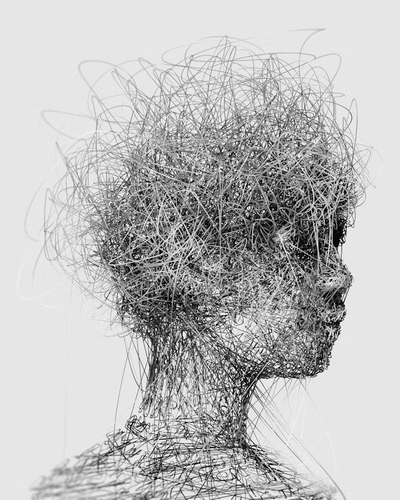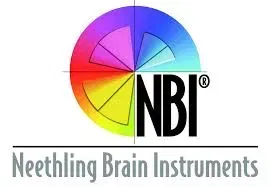Discover the Power of Thinking
-
NBI Brain Profiling
Life Coaching
Career Guidance
About NBI
- Helping you understand -

Why do we think, communicate and behave the way we do?
What explanations exist for differences between family members, between siblings, even twins?
We talk about IQ and memory, and discuss creativity and its relevance in an ever-changing world.
Years of research by internationally acclaimed South African, Dr Kobus Neethling, has culminated in the development of the NBI system of thinking preference assessments.These assessments provide crucial insights into an individual's preference towards left-brain thinking, right-brain thinking and the various combinations there of.
Disclaimer: By no means does the NBI system imply that a person uses only one part of his/her brain - that's just not possible! We always use all of our brain to think!
What the NBI system does evaluate, is the natural preferences or dominances of our thinking.
Let’s simplify this - if you are right handed, you use your right hand more often than your left hand. That does not mean that you do not have a left hand, that you do not need a left hand or that you never use your left hand. It simply means that there is a comfort and familiarity in using your right hand, a natural “go to”, when doing things.
NBI assessments allow us to evaluate your thinking “go to”.
Here is a real life example:
Let's imagine two scenario's with a visual, big picture, future-thinker:
1) When this person has to choose a career and happens to land in a position that requires of him to keep meticulous records of stock day after day, he will, at the very least, be bored, drained, frustrated and unfulfilled. This person may be able to do the job well but it will provide no satisfaction and will be difficult to sustain.
2) Let's imagine the above described thinker as a child who needs to study history. He is asked to sit at a desk and make a bullet point summary for 90 minutes at a time. The child will most likely not memorise the information optimally, as it is not aligned with his natural thinking preference. This will inevitability influence the child's marks (and his self-esteem and self beliefs) directly.
If we desire to achieve in our individual and unique roles in life, have less stressful relationships, have a satisfying career etc., we must make the effort to understand these preferences.
Parents should endeavour to discover the brain profiles of their children and help them to apply this information to studying, subject choices and career choices.
Employers need this information to correctly identify the right employee for a specific position or promotion. Teachers need to know and understand brain profiles, to teach in a manner that all the children in their class can hear and understand the subject matter.
The areas where this information can be applied, are innumerable!

About me
Profile options
NBI Pricing Table
(Enquire about the prices of the other profiles as on PROFILE OPTIONS page)
R2050
Career Guidance package
MOST POPULAR
- NBI Senior Student brain profile
- Brain profile report
- 60 to 90 minute Zoom feedback session - Profile discussion, Career guidance, Q&A
R850
NBI Adult +online feedback session
MOST POPULAR
- NBI Adult Brain Profile
- Brain Profile report
- 45 minute Zoom feedback session/Q&A session
R450
NBI Adult - profile only
- NBI Adult Brain Profile
- Brain profile report
- Without online feedback session
R800
NBI Student P + feedback session
- (Ages 6y - 10y)
- NBI Student P Brain Profile
- Brain Profile report
- 45 minute Zoom feedback session/Q&A session
R800
NBI Student + feedback session
- (Ages 10y - 16y)
- NBI Student Brain Profile
- Brain Profile report
- 45 minute Zoom feedback session/Q&A session
R850
NBI Senior Student + feedback session
- (Ages 16y+)
- NBI Senior Student Brain Profile
- Brain Profile report
- 45 minute Zoom feedback session/Q&A session
F.A.Q
How are NBI profiles done?
NBI profiles are questionnaires done online.
Individuals have the option of completing their profile at home in their own time or can complete the profile at TFSA offices.
Individuals have the option of completing their profile at home in their own time or can complete the profile at TFSA offices.
What does a NBI profile report look like?
The NBI Brain Profile report is a 5 to 8 page report containing descriptions and explanation of the person's unique profile. It describes each quadrants (and dimension if the report was done for an adult/senior student) in detail.
It also contains a circle diagram/graph as an visual presentation of the report results.

It also contains a circle diagram/graph as an visual presentation of the report results.

What are the uses of NBI profiles?
Since our thinking influences how we behave, communicate, take in information, study, which careers would be appropriate and the like, the uses of NBI Brain profiles are vast!
NBI profiles aim to help:
NBI profiles aim to help:
- you understand your unique thinking preferences, communication style etc.
- you better understand those you relate to on a daily basis
- parents understand and resolve conflict with their children
- students with their study styles and subject choices
- students make informed career choices
- resolve conflicts in personal and professional life
- make the best possible choice when wanting to redirect to a new career
- improve the level of creativity and leadership in business
- select the best-suited employees for new positions
- develop effective teams
- retain valuable employees
- develop the whole-brain mental edge in your sport
Can an NBI brain profile help me choose an employee?
The NBI profiles can add great value the workplace.
Each postiontion in the workplace requires a specific set of thinking preferences and skills.
When an employer is wanting to employ a candidate for a specific position, it is critical to understand the candidate's thinking preferences and compare it to the thinking required by the specific position before making a final decision.
The NBI institute has various job profiles on hand to which employers can compare their candidates profile to, OR the employer can choose to set up their own Job Profile for the position, setting up a unique profile, specific to their business, to which the candidate's brain profile report can be compared.
Each postiontion in the workplace requires a specific set of thinking preferences and skills.
When an employer is wanting to employ a candidate for a specific position, it is critical to understand the candidate's thinking preferences and compare it to the thinking required by the specific position before making a final decision.
The NBI institute has various job profiles on hand to which employers can compare their candidates profile to, OR the employer can choose to set up their own Job Profile for the position, setting up a unique profile, specific to their business, to which the candidate's brain profile report can be compared.
Blog
Contact
- Cape Town, South Africa
- +27-62 713 0029
- info@thinkingforwardsa.co.za
- Monday to Thursday 8h00 to 17h00, Fridays 8h00 to 13h00
** Profiles done online, feedback session done in person or Google Meet/Teams


